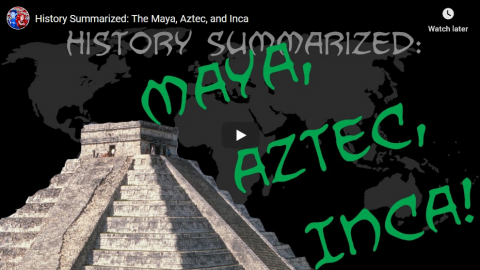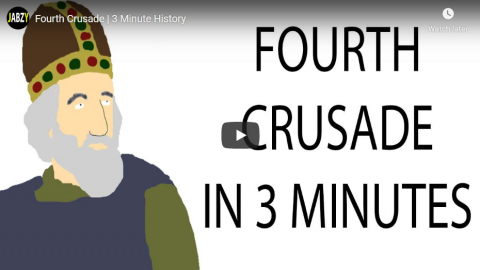britishmuzzleloaders
Published 21 Aug 2018If you would like to support the Channel you can do so through our Patreon Page.
https://www.patreon.com/britishmuzzle…Errata –
The labelling of the “wrongly stamped” Mk III sight should be better described as “confusingly stamped” … the designation refers to the leaf …It should be clarified that the rifle has at some point spent time in India with resultant modifications and maintenance…
Also, as of the 1937 Manual, the safety catch should be applied with the forefinger of the right hand.
For your Martini and Snider needs email Martyn at xringservices@yahoo.com
And for further reading on all British Victorian (and earlier) arms stop by the British Militaria Forum and say hello. http://britishmilitariaforums.yuku.com
May 4, 2020
The No 4, Mk I* Lee-Enfield: Introduction
Government “problem solving” is an oxymoron
Antony Davies and James R. Harrigan explain why you should back away quickly when you hear a variant of “We’re from the government and we’re here to help”:
A central theme of our recent book, Cooperation & Coercion, is that all governments are hamstrung when they attempt to fix problems. Policymakers suffer from the knowledge problem: they don’t know enough to foresee every eventuality that will follow from what they do. Politicians see a problem, speak in sweeping statements, then declare what will happen, assuming their edicts will settle matters. But that is always just the beginning. More often than not, all manner of unintended consequences emerge, often making things worse than they were before their policies went into effect.
Consider the United States’ three high-profile wars against common nouns over the past half-century. Lyndon Johnson declared a War on Poverty in the 1960s, Richard Nixon a War on Drugs in the 1970s, and George W. Bush declared a War on Terror in the early 2000s.
How are those wars working out? Because a back-of-the-envelope calculation indicates that we have spent somewhere in the neighborhood of $23 trillion in our attempt to eradicate poverty, drugs, and terror. Not only have we not won any of these wars, it is unclear that any of them can be won. These three so-called wars have managed to saddle future generations of taxpayers with unprecedented debt. And, as is the case with all coercive endeavors, policymakers ask us to imagine how bad things would have been had we not spent the trillions we did spend. And then they ask for even more money. So now we have unwinnable wars along with institutionalized boondoggles to support them.
We see the same sort of thing happening now in the face of the COVID-19 threat that has induced the largest panic attack in world history. In the name of safety, policymakers have shut down myriad productive endeavors. And there will be a raft of unintended consequences to follow. We are already seeing them manifest, and they portend potential disaster as supply chains fail.
The first cracks in US supply chains appeared in the meat industry. Smithfield Foods, reacting to a number of workers contracting the virus, shut down its Sioux Fall plant. Kenneth M. Sullivan, President and CEO, explained in a press release that, “the closure of this facility, combined with a growing list of other protein plants that have shuttered across our industry, is pushing our country perilously close to the edge in terms of our meat supply.” But it’s not just the meat plant that’s implicated. It’s everyone from the cattle farmer to the person who cooks dinner, and there are a number of people who have a place in that process who might first escape attention. The people who make packing materials needed to ship food, the maintenance workers who service machines up and down the supply chain, the truck drivers who move product from one place to another, the grocers who sell the product, the daycare workers who care for the grocers’ children so the grocers can work, and many, many more are all at risk.
[…]
In declaring some jobs “necessary” and others not, in focusing on one supply chain versus another, policymakers show how little they know about the nation’s economy. In their view, they can simply declare things they want to happen, and then those things will happen. But that is not how economies work. An economy is the sum total of everyone’s activities, and when the government declares that something must happen, all kinds of other things happen too.
Consider how all the “non-essential workers” have been sent home for the past two months. Who gets to declare which workers are non-essential to the economy, and by what standard? Most assumed that politicians had the correct answers to these questions. But, as we are discovering, there is no such thing as “non-essential” workers. All workers are essential. How do we know? Because their jobs existed. Profit-driven businesses do not create non-essential jobs. Those people’s jobs were essential to their employers. Further, those people’s jobs were incredibly essential to the people themselves. They need their wages to pay the rent, buy their food, make their car payments, and for everything else that makes their lives livable.
But policymakers simply declared them non-essential, as if there would be no fallout from that decision.
History Summarized: The Maya, Aztec, and Inca
Overly Sarcastic Productions
Published 29 Jul 2017Human sacrifice, smallpox, and the Spanish empire … that’s the whole story, right? Haha, eheh, hehe, HA, not even close! The civilizations of Mesoamerica are fascinating in their own right, and very distinct from each other too! Step on in and I’ll learn you a thing or two.
Also no spoilers, but next time, I’m covering the Iroquois Confederation! Ok, maybe that was exactly a spoiler. [Reposted here.]
This video was produced with assistance from the Boston University Undergraduate Research Opportunities Program.
PATREON: www.patreon.com/user?u=4664797
MERCH LINKS:
Shirts – https://overlysarcasticproducts.threa…
All the other stuff – http://www.cafepress.com/OverlySarcas…Find us on Twitter @OSPYouTube!
A very different reading of Tolkien’s Tom Bombadil
Colby Cosh retweeted this link that is certainly an interesting look at one of the more obscure characters in J.R.R. Tolkien’s Middle Earth:
Consider: By his own account (and by Elrond’s surprisingly sketchy knowledge) Bombadil has lived in the Old Forest since before the hobbits came to the Shire. Since before Elrond was born. Since the earliest days of the First Age.
And yet no hobbit has ever heard of him.
The guise in which Bombadil appears to Frodo and his companions is much like a hobbit writ large. He loves food and songs and nonsense rhymes and drink and company. Any hobbit who saw such a person would tell tales of him. Any hobbit who was rescued by Tom would sing songs about him and tell everyone else. Yet Merry – who knows all the history of Buckland and has ventured into the Old Forest many times – has never heard of Tom Bombadil. Frodo and Sam – avid readers of old Bilbo’s lore – have no idea that any such being exists, until he appears to them. All the hobbits of the Shire think of the Old Forest as a place of horror – not as the abode of a jolly fat man who is surprisingly generous with his food.
If Bombadil has indeed lived in the Old Forest all this time – in a house less than twenty miles from Buckland – then it stands to reason that he has never appeared to a single hobbit traveller before, and has certainly never rescued one from death. In the 1400 years since the Shire was settled.
What do we know about Tom Bombadil? He is not what he seems.
Elrond, the greatest lore-master of the Third Age, has never heard of Tom Bombadil. Elrond is only vaguely aware that there was once someone called Iarwain Ben-Adar (“Oldest and Fatherless”) who might be the same as Bombadil. And yet, the main road between Rivendell and the Grey Havens passes not 20 miles from Bombadil’s house, which stands beside the most ancient forest in Middle Earth. Has no elf ever wandered in the Old Forest or encountered Bombadil in all these thousands of years? Apparently not.
Gandalf seems to know more, but he keeps his knowledge to himself. At the Council of Elrond, when people suggest sending the Ring to Bombadil, Gandalf comes up with a surprisingly varied list of reasons why that should not be done. It is not clear that any of the reasons that he gives are the true one.
Now, in his conversation with Frodo, Bombadil implies (but avoids directly stating) that he had heard of their coming from Farmer Maggot and from Gildor’s elves (both of whom Frodo had recently described). But that also makes no sense. Maggot lives west of the Brandywine, remained there when Frodo left, and never even knew that Frodo would be leaving the Shire. And if Elrond knows nothing of Bombadil, how can he be a friend of Gildor’s?
What do we know about Tom Bombadil? He lies.
A question: what is the most dangerous place in Middle Earth? First place goes to the Mines of Moria, home of the Balrog, but what is the second most dangerous place? Tom Bombadil’s country.
By comparison, Mordor is a safe and well-run land, where two lightly-armed hobbits can wander for days without meeting anything more dangerous than themselves. Yet the Old Forest and the Barrow Downs, all part of Tom’s country, are filled with perils that would tax anyone in the Fellowship except perhaps Gandalf.
Now, it is canonical in Tolkein that powerful magical beings imprint their nature on their homes. Lorien under Galadriel is a place of peace and light. Moria, after the Balrog awoke, was a place of terror to which lesser evil creatures were drawn. Likewise, when Sauron lived in Mirkwood, it became blighted with evil and a home to monsters.
And then, there’s Tom Bombadil’s Country.
The hobbits can sense the hatred within all the trees in the Old Forest. Every tree in that place is a malevolent huorn, hating humankind. Every single tree. And the barrows of the ancient kings that lie nearby are defiled and inhabited by Barrow-Wights. Bombadil has the power to control or banish all these creatures, but he does not do so. Instead, he provides a refuge for them against men and other powers. Evil things – and only evil things – flourish in his domain. “Tom Bombadil is the master” Goldberry says. And his subjects are black huorns and barrow wights.
What do we know about Tom Bombadil? He is not the benevolent figure that he pretends to be.
Fourth Crusade | 3 Minute History
Jabzy
Published 24 Sep 2016https://www.patreon.com/Jabzy
Thanks to Xios, Alan Haskayne, Lachlan Lindenmayer, Victor Yau, William Crabb, Derpvic, Seth Reeves and all my other Patrons.
QotD: The eternal “now” of Progressive stasis
The best practical definition of conservatism I’ve heard is “planting trees you won’t live to sit under.” I’ll die, and though nothing of me will remain, my home, my community, my nation, my civilization, my people will remain … and I did my part, however small, to ensure it, by living my life well. My honor is my loyalty, as someone or other once said.
None of that matters to the cultural marxist, though. How could it? As I wrote yesterday, to the fanatic, the past is one long catalog of freely chosen error. Nor is there any meaningful future to a fanatic. That seems wrong, I realize, but consider that time passes through contrast. People will be born and die in the Communist Utopia, but since everyone will always have everything, human activity will be exquisitely pointless …
Ignore what Leftists say. Watch what they do, and it’ll soon be obvious that what they long for above all things is stasis. They want everyone and everything to be one way, and one way only, forever. Homosexuals are the most flamboyant example. Imagine that — having your entire life defined by your sexual attraction. I like blondes, but you know, if the right brunette came along I’d go for her. Heck, I’d even go for a ginger (I know, I know, I’m a monster). But according to the Left, that’s not allowed. I like blondes, and therefore I’m only allowed to like blondes. Oh, and I can only vote for Bernie Sanders, because he’s the attracted-to-blondes candidate, and I must support abortion, and use the word “cisgendered,” and …
Thus, to the Leftist there’s no past, and no future either. There’s only now, and the only thing that matters now is power. How could it be otherwise?
Severian, “The Endless Now”, Rotten Chestnuts, 2020-01-23.








